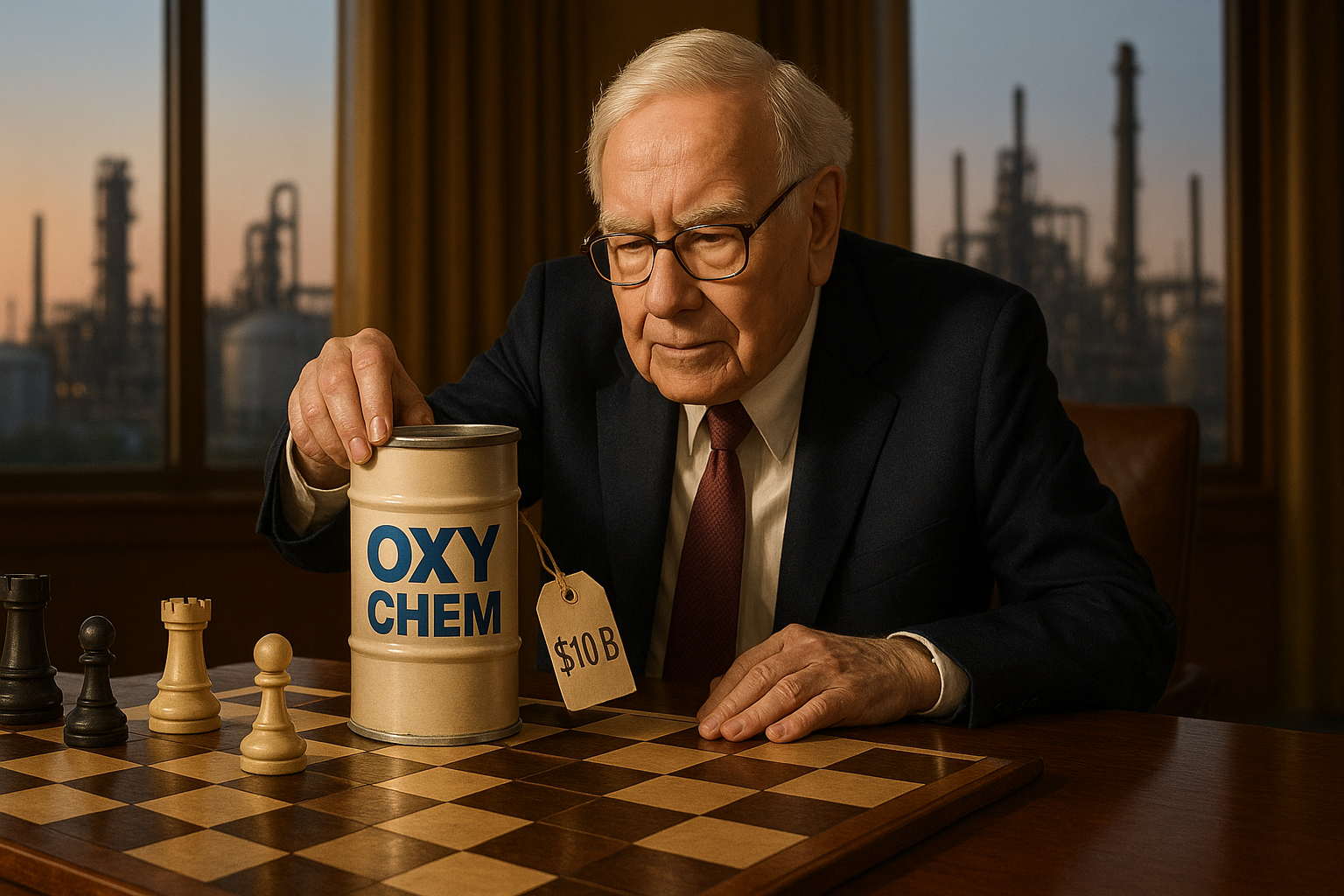Warren Buffett is finally reaching for his wallet again. And not for peanut brittle.
After years of sitting on the sidelines—watching, waiting, complaining about high prices—Berkshire Hathaway appears ready to pull the trigger on its first major acquisition in what feels like forever. According to Wall Street Journal reports, Buffett's conglomerate is closing in on a deal to snag Occidental Petroleum's OxyChem division for about $10 billion.
Ten. Billion. Dollars.
And yet, in the bizarre world of Berkshire's finances, this barely qualifies as breaking a sweat. The company is sitting on $344 billion in cash—a sum so large it's difficult to contextualize. It's like watching someone with $34,400 in their checking account finally splurge on a $1,000 purchase after years of hesitation.
I've been tracking Buffett's acquisition drought since the Alleghany deal closed in 2022, and the pattern has been fascinating. The man who once swallowed companies like Burlington Northern Santa Fe ($34 billion) and Precision Castparts ($37 billion) has transformed into something of a nibbler rather than a feaster.
This OxyChem business makes perfect sense if you've been paying attention to Buffett's slow-motion romance with Occidental. Berkshire already owns roughly 28% of the company, plus preferred shares and warrants that date back to 2019 when Occidental needed Buffett's backing to buy Anadarko. It's classic Buffett—first date, second date, meet the parents, then maybe buy their garage.
What strikes me as particularly Buffett-esque is how deeply unsexy this potential purchase is. Petrochemicals? In 2024? While tech bros are building AI hallucination machines and clean energy evangelists predict the imminent death of hydrocarbons?
Yeah. That's exactly why it's a Buffett move.
OxyChem makes chlorine and caustic soda—chemicals so fundamental to industrial processes that they're practically invisible to consumers yet impossible to live without. They're used in water treatment, paper production, and manufacturing countless everyday products. Boring? Absolutely. Essential? You bet your sweet dividend they are.
(Full disclosure: I owned Occidental shares years ago but sold them during the pandemic crash—a decision that now looks premature given Buffett's growing interest.)
Look, there's a method to what sometimes appears as Buffett's madness. While Wall Street chases the next big thing, he's perfectly happy buying businesses that make stuff people need every single day. The profits might not be explosive, but they're durable. And durability, over decades, is Buffett's secret weapon.
The timing here deserves mention, too. Occidental's stock has been dragging, down about 20% from recent highs. Buffett has always had an almost preternatural ability to smell blood in the water—not enough to indicate the patient is dying, but just enough to negotiate favorable terms while the other party feels vulnerable.
For Occidental CEO Vicki Hollub, selling OxyChem makes strategic sense. The company took on massive debt to acquire Anadarko, and this move would generate substantial cash to clean up the balance sheet. There's something almost circular about Buffett now potentially buying assets that his earlier financing helped Occidental acquire in the first place.
Will this trigger a return to Buffett's acquisition heyday? I'm skeptical. At 93, even with the remarkable Greg Abel waiting in the wings, Buffett seems content to move more deliberately than in previous decades.
But that's what makes watching Berkshire so fascinating. When everyone zigs toward digital transformation, Buffett zags toward chemicals. When ESG considerations push investors away from traditional energy, he doubles down. When everyone wants quick returns, he plays the longest game in town.
The markets will probably respond positively but without fireworks. After all these years, investors have learned that betting against Buffett's vision is typically a losing proposition, even when his moves initially seem puzzling or even backward-looking.
I remember covering Berkshire's 2013 Heinz investment, which many analysts initially questioned. "Packaged food? In the era of fresh and organic?" they wondered. Years later, it looked pretty darn smart.
That's the thing about Buffett that never ceases to amaze me—while billionaire contemporaries chase moonshots and metaverses, he's perfectly content making money off the mundane materials that make modern life possible. In our era of financial engineering and algorithmic trading, there's something profoundly reassuring about that simple approach.
Even if it takes $344 billion to execute it.
